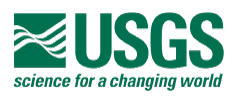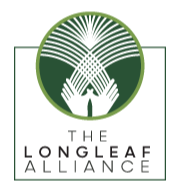Webinars and Instructional Videos
Here you can find curated webinars and instructional videos related to Grasslands and Savannas.
You can add new videos as a logged-in user, or you can share resources with jmcguire@quailforever.org and they will be included here.
WLFW East Region Conservation Webinar Series: Northern Bobwhite Session #13 “Quail Harvest Management”
Session 13 of the “Northern Bobwhite” mini-series was presented by Dwayne Elmore with Tall Timbers. This session focuses on the basics of harvest management and the science behind it. Topics covered include compensatory vs additive harvest, historical context about small game regulations, and bobwhite population ecology basics.
WLFW East Region Conservation Webinar Series: Northern Bobwhite Session #12 “Precision Ag and Bobwhites”
Session 12 of the “Northern Bobwhite” mini-series was presented by Jacob Taylor with Quail Forever in Tennessee. This session focuses on the basics of precision ag and how to use it to create bobwhite habitat. Topics covered include precision ag definition, return on investment, and the economics of including various practices into a conservation plan.
WLFW East Region Conservation Webinar Series: Northern Bobwhite Session #11 “Bobwhites in Working Grazing Land in Eastern Kentucky”
Session 11 of the “Northern Bobwhite” mini-series was presented by Doug Mitchell with the University of Tennessee. This session focuses on research done in eastern Kentucky on pasture lands. They looked at the differences for bobwhite probability of use in cool season grass pastures vs native warm season grass pastures as well as some other variables. Topics covered include methods for trapping and vegetation surveys and results of the study.
WLFW East Region Conservation Webinar Series: Northern Bobwhite Session #10 “Decision Support Tool: Managing Timber and Quail”
Session 10 of the “Northern Bobwhite” mini-series was presented by Daniel Crawford with the University of Georgia. This session focuses on a new app that helps in making decisions for pine management and wildlife objectives in Georgia. Topics covered include background of general pine plantation management, motivation to create this tool, experiment design, and a demonstration of this app.
WLFW East Region Conservation Webinar Series: Northern Bobwhite Session #9 “Brood Rearing Habitat”
Session 9 of the “Northern Bobwhite” mini-series was presented by Justin Hill with University of Georgia. This session focuses on research looking at brood rearing habitat for bobwhite quail. Topics covered include life history of bobwhite quail, bobwhite chick ecology, and brood rearing habitat.
WLFW East Region Conservation Webinar Series: Northern Bobwhite Session #8 “Bobwhite Breeding Season Roost Site Selection in an Ag Landscape”
Session 8 of the “Northern Bobwhite” mini-series was presented by Olivia Lappin with Pheasants Forever/Quail Forever. This session focuses on research looking at vegetation structure selection for roosting sites during the breeding season. Topics covered include bobwhite capture methods, banding and collaring quail, bobwhite habitat requirements, research methods and results, and maximizing usable space.
WLFW East Region Conservation Webinar Series: Northern Bobwhite Session #7 “Quail Monitoring Methods”
Session 7 of the “Northern Bobwhite” mini-series was presented by Diana McGrath with Georgia DNR. This session focuses on different methods to monitor bobwhite on public and private land. Topics covered include population survey overview, bobwhite specific survey methods, spring whistle counts, fall covey counts, ARUs (automated recording units), trapping and banding, and informing harvest rates.
WLFW East Region Conservation Webinar Series: Northern Bobwhite Session #6 “Bobwhite in Hardwood Forest Systems”
Session 6 of the “Northern Bobwhite” mini-series was presented by John Gruchy with MDWFP. This session focuses on the Northern Bobwhite Quail in upland hardwood systems. Topics covered include defining “Dry Upland Hardwoods,” forest health and other considerations for managing upland hardwoods, assessing stands to refine potential treatment options, and examples of different management regimes on private and public land.
WLFW East Region Conservation Webinar Series: Northern Bobwhite Session #5 “Bobwhite in Pine Forest Systems”
Session 5 of the “Northern Bobwhite” mini-series was presented by Brad Kubecka with Tall Timbers. This session focuses on the Northern Bobwhite Quail in pine systems. Topics covered include the limiting factors for bobwhite habitat in pine systems, different thinning techniques in planted vs native pine stands, importance of prescribed fire in pines, and realistic tradeoffs between managing property for timber and/or Northern Bobwhite.
WLFW East Region Conservation Webinar Series: Northern Bobwhite Session #4 “Bobwhite in Pasture Systems”
Session 4 of the “Northern Bobwhite” mini-series was presented by Tanner Patton with Pheasants Forever/Quail Forever. This session focuses on the Northern Bobwhite Quail in pasture systems. Topics covered include the disadvantages of non-native grass for Northern Bobwhite and livestock, benefits of NWSG to livestock and Northern Bobwhite, and grazing practices that help your livestock operation while simultaneously promoting wildlife.
WLFW East Region Conservation Webinar Series: Northern Bobwhite Session #3 “Bobwhite in Ag Spaces”
Session 3 of the “Northern Bobwhite” mini-series was presented by Dr. Mark McConnell from Mississippi State University. This session focuses on the Northern Bobwhite Quail in agricultural landscapes. Topics covered include landscape changes driven by national trends, land sharing vs land sparing, socio-ecological systems and how to move towards better habitat, and opportunities for quail habitat in ag landscapes using profit margin and yield maps.
WLFW East Region Conservation Webinar Series: Northern Bobwhite Session #2 “Bobwhite Habitat”
Session 2 of the “Northern Bobwhite” mini-series was presented by James Martin from the University of Georgia. This session focuses on the Northern Bobwhite Quail and its basic habitat needs. Topics covered include quail numbers in managed areas, habitat connectivity, landscape scale effect of management practices, 4 basic habitat needs for bobwhites, and habitat heterogeneity.
WLFW East Region Conservation Webinar Series: Northern Bobwhite Session #1 “Bobwhite Biology”
Session 1 of the “Northern Bobwhite” mini-series was presented by James Martin from the University of Georgia. This session focuses on the Northern Bobwhite Quail and its basic biology. Topics covered include species overview across its range, population trends in different areas of the country, bobwhite quail mating strategies, nesting success, and annual survival.
WLFW Pollinator Conservation Webinar Series: Session # 12 Maintaining Pollinator Habitat
Session 12 of the WLFW East Region Conservation Webinar series was presented by Brittney Viers, PF/QF’s Tennessee State Coordinator. This session focuses on how to properly maintain pollinator habitat and is the last session in the pollinator series. Topics covered include the history of Southern Grasslands, designing adequate seed mixes, utilizing native seed banks, planting methods, and management techniques.
WLFW Pollinator Conservation Webinar Series: Session # 11 PF/QF’s Pollinator Habitat Program
Session 11 of the WLFW East Region Conservation Webinar series was presented by Kim Cole, PF/QF’s Habitat Education Program Manager. This session focuses on resources for hosting pollinator events and is the second session on “pollinator outreach” in the series. Topics covered include Pollinator Habitat Outreach Program, Habitat Education Resources, and Milkweed in the Classroom.
WLFW Pollinator Conservation Webinar Series: Session # 10 How to Do a Pollinator Outreach Event
Session 10 of the WLFW East Region Pollinator Conservation Webinar series was presented by Catherine Beall, South Dakota’s Monarch and Pollinator Coordinating Wildlife Biologist. This session focuses on how to host a pollinator outreach event and is the first session on “pollinator outreach” in the series. Topics covered include the first steps to consider when organizing an event, assembling an agenda, how to advertise, how to prepare the week of the event, things to consider on the day of the event, and follow-up after the event.
WLFW Pollinator Conservation Webinar Series: Session # 9 Pollinators & Forestland-Underappreciated Pollinator Habitat
Session 9 of the WLFW Pollinator Conservation Webinar series, presented by Kass Urban-Mead, Pollinator Conservation Specialist for the Xerces Society and a Partner Biologist with the USDA Natural Resources Conservation Service. This session focuses on the relationship of pollinators and forestland. Topics covered include an introduction to bee diversity and forest habitats, how bees and other pollinators use the woods, and forest health and pollinators.
WLFW Pollinator Conservation Series: Session # 8 Pollinators and Livestock Grazing
Session 8 of WLFW East Region Conservation Webinar series, presented by Jason Jones and Katrina Sims, Grassland and Grazing Coordinators in Ohio and Arkansas, respectively. This session focuses on grazing livestock with consideration of pollinators. This is the third of three sessions on “pollinator habitat” in the series. Topics covered include benefits of native grassland restoration, native grazing considerations for conservation planning, pasture conversion and establishment, and grazing strategies.
WLFW Pollinator Conservation Webinar Series: Session # 7 Do I Need a Pollinator Seed Mix and How to Build One
Session 7 of WLFW Pollinator Conservation Webinar series, presented by Kelly Gill, Pollinator Conservation Specialist for the Xerces Society and a Partner Biologist with the USDA Natural Resources Conservation Service. This session focuses on building seed mixes designed for pollinators and is the second of three sessions on “pollinator habitat” in the series. Topics covered include recognizing whether a seed mix is needed, various seed mix options through NRCS, and specific information needed to build a seed mix such as habitat design and species selection.
WLFW Pollinator Conservation Series: Session #6 Planning & Establishing Pollinator Habitat
Session 6 of WLFW Pollinator Conservation Webinar series, presented by Celia Vuocolo, WLFW Pollinator Coordinator-East with Quail Forever & USDA-NRCS. Topics covered include a step by step process for planning and establishing pollinator habitat, including site selection, options for restoration and Farm Bill programs planning process.


























